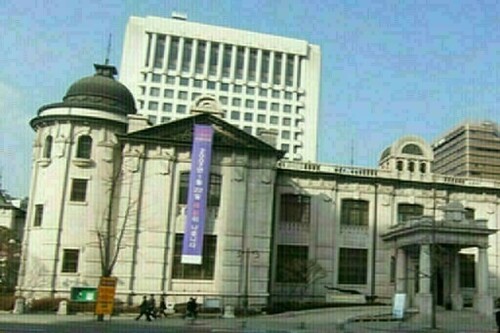South Korea Signals Potential Rate Cut Amid Economic Concerns
SEOUL – The central bank of South Korea indicated on Thursday that it might lower interest rates in May. This move signals a readiness for further monetary easing to address “significant” economic risks resulting from the extensive tariff policies of US President Donald Trump.
The Bank of Korea’s (BOK) decision to maintain the benchmark interest rate at 2.75% during its monetary policy review was widely anticipated. Governor Rhee Chang-yong stressed the bank’s commitment to managing economic instability.
Rhee stated at a press conference that, besides himself, all six board members are open to the possibility of an interest rate cut when considering the policy direction for the upcoming three months.
The governor’s statement underscores the rapidly evolving global economic landscape. The BOK’s earlier policy statement had already cautioned about a possible economic downturn in the first quarter, primarily due to significant wildfires and domestic political uncertainty.
A key concern is the global trade disruption initiated by the US administration.
Rhee told reporters that the risks to economic growth have grown significantly. He added that due to the swift changes in the US tariff policies and the reactions from major nations, forecasting future growth is highly uncertain.
The BOK meeting occurred shortly after US Federal Reserve Chair Jerome Powell tempered expectations of immediate action to ease investor concerns. Meanwhile, the Bank of Canada held its policy rates steady amid the uncertainty surrounding US tariffs.
Paik Yoon-min, an analyst at Kyobo Securities, suggested that the BOK is likely to reduce interest rates in May, based on the governor’s comments about the board members’ views on the policy rate.
Paik Yoon-min added that policy interest rates could reach 2.25% by the end of the year, potentially decreasing further if the annual growth rate falls below 1%.
Analysts have predicted a decrease in the benchmark interest rate to 2.25% by the end of the third quarter. This is driven by anxieties that shifting US tariff policies will trigger a global recession and significantly reduce exports from South Korea.
Since starting its rate-cutting cycle in October, the BOK has reduced rates three times.
Additional Fiscal Measures
Finance Minister Choi Sang-mok cautioned on Tuesday about substantial risks to growth from tariffs. He also noted that the government will seek to postpone the enactment of reciprocal tariffs through negotiations with the United States.
South Korea was subject to 25% reciprocal tariffs as part of broad US trade measures affecting multiple countries. However, these tariffs have been temporarily suspended by Trump for three months.
The temporary relief offered some support to the Korean won, which had previously fallen to a 16-year low on April 9. This level was last seen during the global financial crisis.
Following Rhee’s press conference, the won reduced its losses, trading down by 0.16% at 1,418.1 per dollar. Additionally, treasury bond futures decreased, and stocks experienced gains.
The government is planning to engage in talks with Washington to lower tariffs. Moreover, they intend to allocate an extra budget of 12 trillion won ($8.41 billion) to bolster the economy as it faces both political challenges and a volatile global trade environment.
South Korea is scheduled to hold its presidential election on June 3, following the impeachment of former president Yoon Suk Yeol linked to a martial law declaration in December.



Comments (0)
No comments yet. Be the first to comment!
Leave a Comment